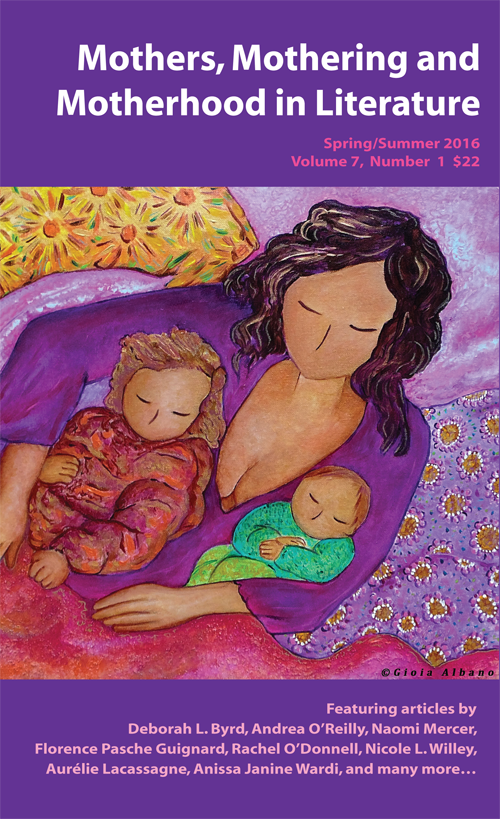The Hierarchy of Motherhood in Adoption: Literary Narratives of Kinship, Maternal Desire, and Precarity
Abstract
How have women’s (in)ability to reproduce, (un)desire to mother, or essentialist understandings of birth mothering, biomothering, or adoptive mothering been represented in literature? Narratives of adoption and mothering can trouble the boundaries of reproduction, reveal cultural anxieties surrounding the idea of maternal desire, and, thereby, invite transgressions of the definitions and boundaries of moth- erhood. Investigating the portrayal of adoption and mothering in literature opens up what Denise Cuthbert, Kate Murphy and Marian Quartly consider, “a much needed critical space for thinking about the family and mothering in non-essentialist ways which challenge the dominant script of family and motherhood” (412). When examining a selection of literary works—including Jackie Kay’s novella length poem “The Adoption Papers,” a selection of short stories from Elyse Gasco’s collection Can You Wave Bye Bye Baby, Zona Gale’s story “Adoption,” and the fictionalized memoir by Jennifer Gilmore, <em>The Mothers</em>—which characterizations of “mother” perpetuate, and which challenge dominant normative definitions of womanhood, and bio-essentialist notions of mothering? Structures of inequality and economics, lingering binaries of who can and should mother and the construction of “good” and “bad” mother can also place adoptive and biological mothers into a position of precarity. In deconstructing all these narratives, the reader can reflect on the tensions in the perceptions of adoptive and birth mothers and question attendant notions of attachment, suitability, and authenticity: in particular, the assumption of maternal desire for all women, the places of precarity for birth mothers and adoptive mothers, and hierarchical notions of “real mother.”Downloads
How to Cite
Issue
Section
License
All intellectual property in relation to material included on this site belongs to the Motherhood Initiative for Research and Community Involvement (MIRCI). All material on this site is protected by Canadian and international copyright and other intellectual property laws. Users may not do anything which interferes with or breaches those laws or the intellectual property rights in the material. All materials on the Motherhood Initiative for Research and Community Involvement (MIRCI) are copyrighted and all rights are reserved. Any reproduction, modification, publication, transmission, transfer, sale, distribution, display or exploitation of the information, in any form or by any means, or its storage in a retrieval system, whether in whole or in part, without the express written permission of the Motherhood Initiative for Research and Community Involvement (MIRCI) is prohibited. Please contact us for permission to reproduce any of our materials. This site may include third party content which is subject to that third party's terms and conditions of use.


